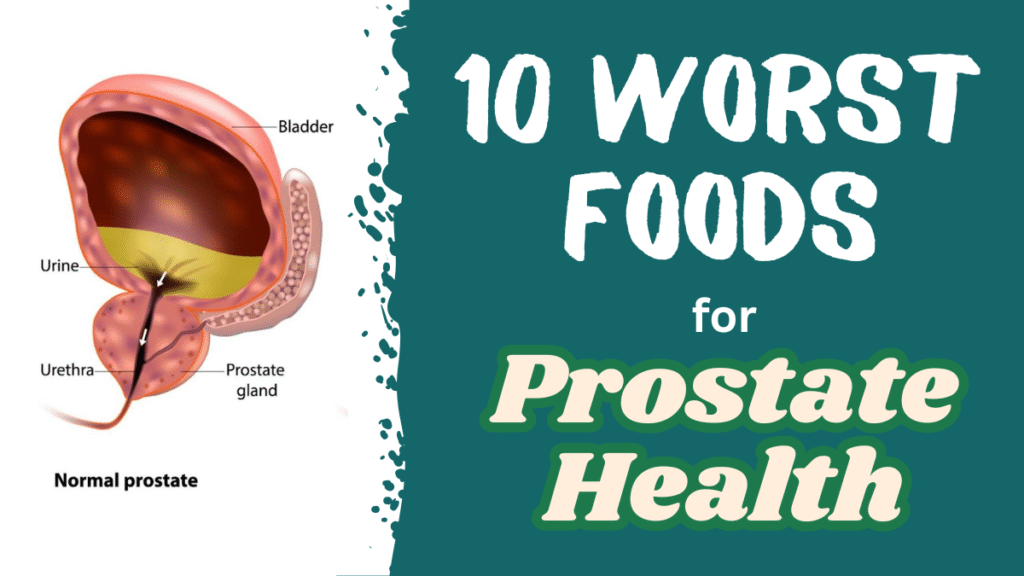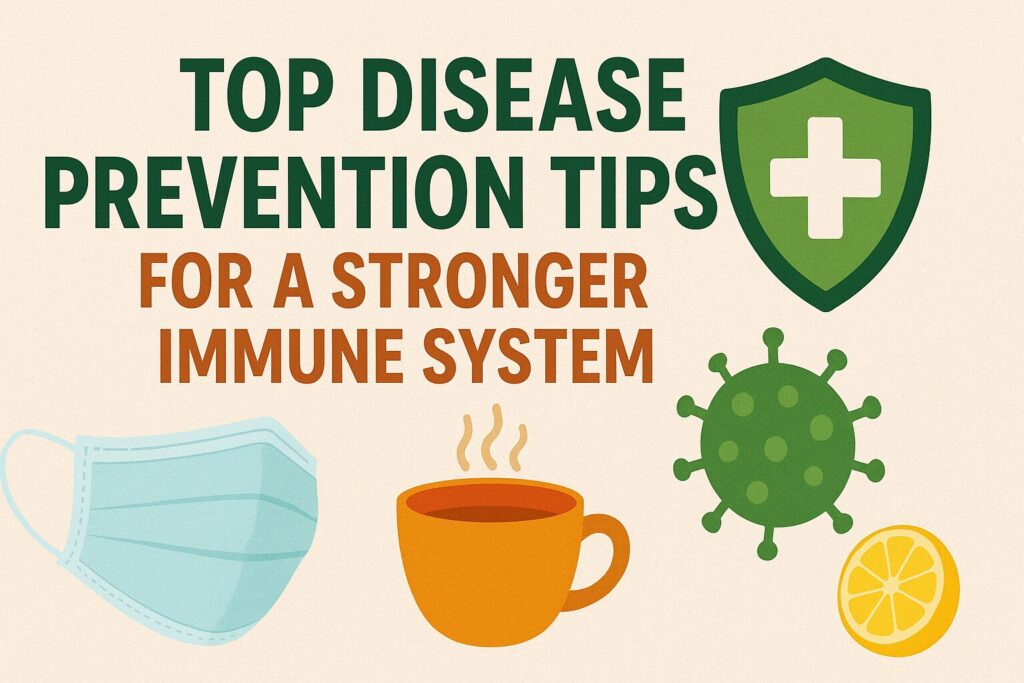Knowing the ten worst foods for prostate health is essential for maintaining your well-being. The fact that you’re reading this means you are someone who is aware of your health and is looking for solutions. Now, let’s see how Medinfobox can help you!
Understanding Prostate Health
The prostate is a small gland shaped like a walnut. It plays a big role in men’s health. Prostate sits below the bladder and surrounds the urethra in men. It works to produce fluid that forms part of semen. But the foods we eat can affect how it performs and for any organ, it can face issues.
Caring of your prostate is more than just a once-in-a-while check-up. It involves lifestyle, diet and keeping things simple and consistent. Avoiding Ten Worst Foods for Prostate Health will help you to keep your prostate healthy.
A friendly reminder: While diet alone won’t guarantee perfect prostate health, what you eat does matter.
Dr. Mark Scholz, M.D
Prostate Cancer Specialists and a double board-certified medical oncologist Said:
“Understanding your prostate health is not about fear-it’s about empowerment. When men are informed, they make better decisions and live longer, healthier lives.”
on Prostate Cancer Research Institute (PCRI) Conference Talk, 2025

Common Prostate Issues
Two of the most common prostate problems are:
- Enlarged Prostate (Benign Prostatic Hyperplasia, BPH): This is when the prostate grows bigger than normal, squeezing the urethra and making urination harder, more frequent, or less efficient. It’s very common as men age.
- Prostate Cancer: This is among the most frequent cancers in men. Genetics, age, and lifestyle all play a part, but diet and body weight are modifiable factors too.
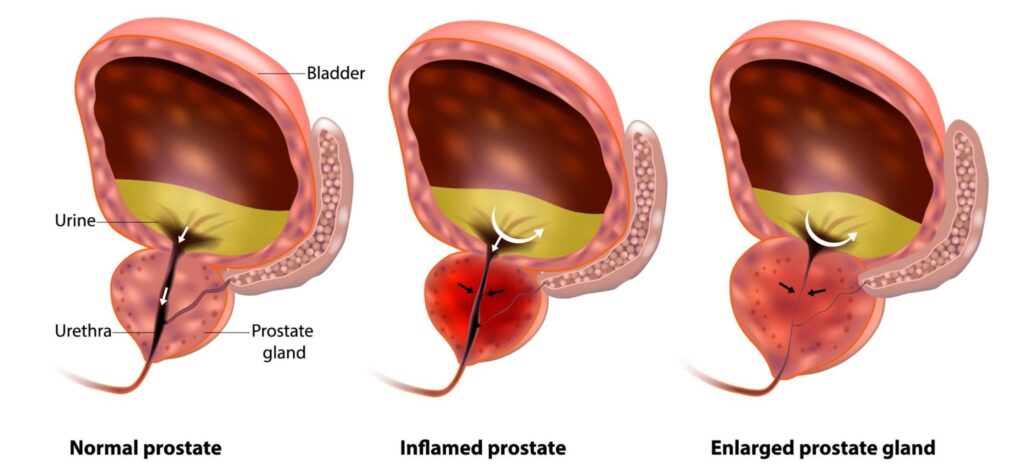
Both situations can interfere with quality of life-urinating, sexual function, comfort and that’s why the diet is smart attention.
Why Diet Impacts Prostate Health
Here is the thing: the prostate is sensitive to our internal body environment-hormones, inflammation, oxidative stress, and even how the bladder and urethra respond. Influences all of that what we eat.
- Certain foods promote inflammation and raise saturated-fat levels, which may strain prostate cells.
- Cooking methods matter: meats cooked at high heat, for example, can generate compounds linked to increased risk of prostate issues. (Reference-1)
- Bladder-irritating foods or drinks can intensify the urinary symptoms related to an enlarged prostate (needing to pee urgently, experiencing a weak stream, waking up at night).
So sure, diet isn’t the only thing – but it’s something you have control over. And in friendly language: Consider your diet as an opportunity to support your prostate, rather than something to stress over.
Read More Post: Best Herbal Remedies for Digestive Health and Gut Wellness
The Ten Worst Foods for Prostate Health
Here are 10 types of food that studies have shown you might want to restrict or avoid if you’re concerned about prostate health. I will also explain briefly why each one can be devilish.
1. Red Meat and Its Link to Prostate Cancer
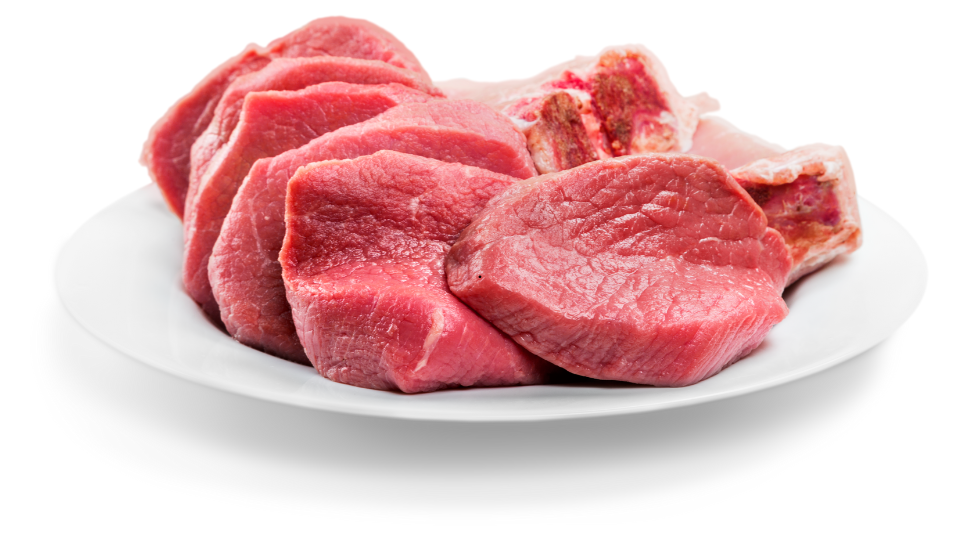
Red meat – say beef or lamb or pork – has been associated in a number of studies with an increased risk for prostate cancer and other prostate issues.
Why is that? A couple of potential factors: The high saturated fat content, heme iron and the production of harmful chemicals from cooking meat at a high temperature (grilling, charring), such as heterocyclic amines (HCAs) and polycyclic aromatic hydrocarbons (PAHs).
If you like red meat, you don’t have to stop (unless it’s medically necessary), but certainly cutting down and choosing leaner cuts with milder cooking is beneficial.
2. Processed Meats
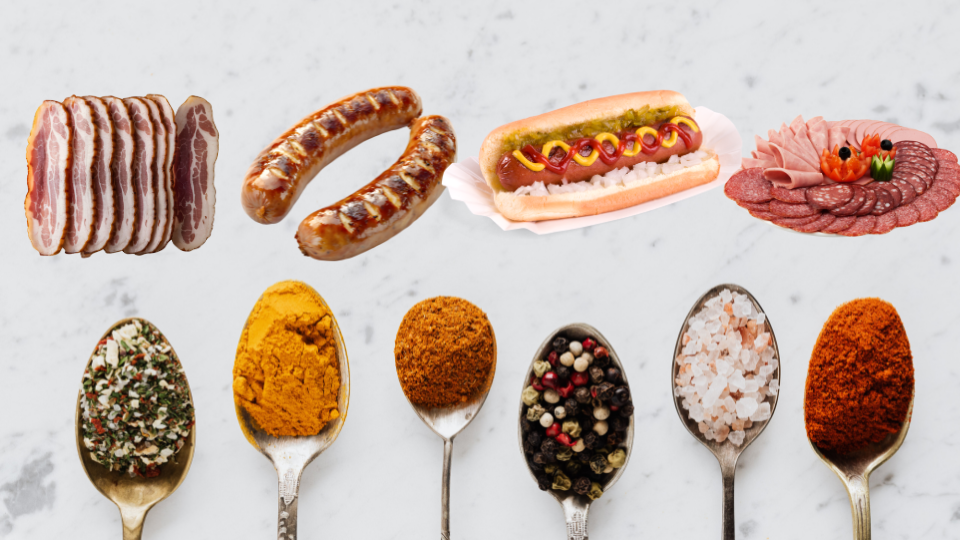
Processed meats include sausages, bacon, deli meats, hot dogs. These accumulate the risks of red meat plus added preservatives, high salt, nitrites, and often unhealthy cooking methods. (Reference-2)
Some analyses show higher consumption of processed meat correlates with a slightly higher prostate cancer risk. (Reference-1)
Given this, treating processed meat as an occasional treat rather than a regular staple is wise.
3. High-Fat Dairy Products
This includes full-fat milk, cream, butter and whole-milk cheese. A number of research studies indicate that high intake of fatty dairy is associated with increased risk for prostate cancer progression.
The thinking: saturated fat levels, potential hormones found in dairy and promotion of the insulin-like growth factor-1 (IGF-1), which can promote cell growth.
Going for low-fat dairy or non-dairy options can take stress off your prostate.
4. Sugary Foods and Beverages
Lots of refined sugar, sugary drinks (sodas, sweetened fruit drinks), desserts: these can lead to obesity, insulin resistance, inflammation-all of which are not friendly to prostate health.
The link is indirect: the sugar itself may not attack the prostate-but the metabolic damage it causes creates a pro-inflammatory environment.
Best to moderate sweets and sweet beverages, especially if you’re already dealing with weight or prostate issues.
5. Alcohol and Its Effects
Moderate alcohol may be okay, but heavy drinking or frequent use is linked to increased risk of prostate cancer and can worsen urinary symptoms tied to an enlarged prostate.
Alcohol also impacts the liver, hormone metabolism, and may lead to oxidative stress.
So if you’re a drinker, that’s something to take into account and limit, at least occasionally and moderately; and if you already have prostate problems, it might make sense to cut back even more.
Read More Post: Health Risk of Unhealthy Habits: 100+ Diseases and Their Causes
6. Caffeinated Products
Coffee, strong teas, energy drinks etc. What makes these end up on the “avoid” list? Caffeine has the added drawback of being a diuretic – it can make you pee more, and perhaps irritate the bladder and urethra. That matters for someone with BPH or prostate irritation.
And, it turns out that caffeine can also irritate the bladder in ways that make symptoms worse (ur gency, frequency).
No need to eliminate caffeine entirely, but remember that the high levels or late-in-day caffeine can exasperate prostate/urinary situations.
7. Fried Foods
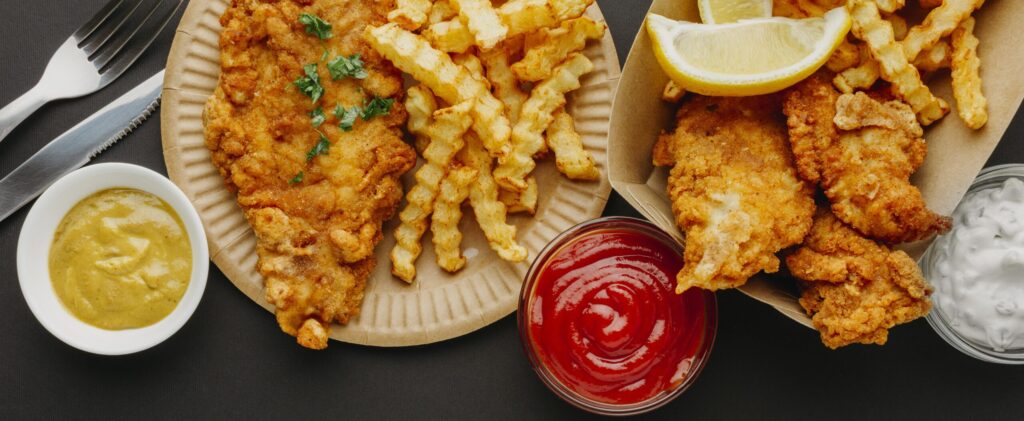
Fried foods often come with high levels of unhealthy fats—trans fats or saturated fats—and can lead to inflammation and oxidative stress. Some studies suggest such foods correlate with worse prostate health outcomes.
Think fried chicken, fries, battered fish, heavy fast food meals. Choosing baked, grilled, or steamed options is the smarter route.
8. Foods High in Saturated Fats
This overlaps with some prior categories (red meat, high-fat dairy, fried food) but it’s worth calling out: saturated fat intake gets tied in many studies to a higher risk of prostate cancer or BPH symptoms.
Saturated fats can drive inflammation, disrupt hormone balance, and increase bad cholesterol—all of which don’t favour prostate health.
Thus lean proteins, fish, plant fats (olive oil, nuts) are better alternatives.
9. Highly Processed Foods
Foods that come in a box, bag or can – with long lists of ingredients on the label (preservatives, food additives, high sodium content and refined flours) are generally low in nutrients and high in things like sugar, fat or salt that give us exactly the opposite type of stimuli than our body needs to function well.
Excessive consumption could worsen symptoms of prostate or increase risk. Better to seek out whole, natural foods whenever you can.
10. Foods That Irritate the Prostate
This category is a little different – it includes foods or drinks that might not directly increase cancer risk, but can cause inflammation of the prostate or the urinary system, particularly if you already have BPH or prostatitis.
Examples include : Spicy foods, high sodium items, strong condiments, very acidic foods, maybe even some high oxalate foods.
Why? These may irritate the bladder or prostate, leading to urgency and burning or discomfort. Even if these alternatives are less carcinogenic in the long term, they can decrease quality of life.
Which is the Least Harmful?
So of the Ten worst foods for prostate health listed above, it’s only fair to ask: which is the least damaging?
If I were to choose by relative risk and severity, I’d say “foods that irritate the prostate” (number 10) are among the least important in terms of long-term cancer risk – but they are quite relevant for comfort and urinary symptoms.
Why that choice?
- The top nine on the list are heavily associated with either raising cancer risk or worsening prostate enlargement in research.
- The tenth category has more to do with “aggravation” rather than being a dominant cause of disease.
- If you already steer clear of or ration the first nine, then zeroing in on the irritants is a sensible next step for symptom relief.
That said: “least harmful” does not mean harmless. Even that 10th category can diminish the quality of life if you already have prostate problems. A more judicious mindset: avoid or restrict the worst, moderate next-worst and choose healthier options.
In brief, steer away from red meat and processed meats; high-fat dairy; high-sugar items that quickly pass through your digestive system as well as sugary/fried desserts; alcohol, higher-caffeine options (above three cups of coffee per day); fried foods/high-saturated fat items like certain fast food entrees + heavily refined ingredients. Then focus on the foods that set off your system.
Prostate-Friendly Diet
After reading the Ten Worst Foods for Prostate Health, Now are some friendly tips to build a prostate-supporting diet:
- Lean proteins: Opt for fish (especially fatty fish like salmon, mackerel), skinless poultry, beans, lentils.
- Healthy fats: Olive oil, avocado, nuts and seeds. These fats support general health without the overload of saturated fat.
- Plenty of vegetables and fruits: Especially cruciferous vegetables (broccoli, kale), tomatoes (lycopene is helpful), berries for antioxidants.
- Whole grains and fiber: Oats, brown rice, whole-wheat, beans. Fiber supports overall metabolic health which in turn supports prostate health.
- Hydration: Water is best. Limit sugary drinks, and moderate caffeinated beverages.
- Moderation with dairy: If you consume dairy, prefer low-fat versions and watch total amounts.
- Mind your cooking method: Grilling with less charring, baking or steaming, less deep-frying.
- Watch salt and processed foods: Lower sodium helps urinary and general health, and fewer preservatives/additives reduce inflammatory burden.
- Regular check-ups and healthy lifestyle: While diet matters, exercise, maintaining healthy weight, not smoking, limiting alcohol all add up for prostate health.
Last Words for Ten Worst Foods for Prostate Health Article
Nurturing your prostate doesn’t have to involve a joyless or restrictive diet. It’s simply a matter of making good decisions and trying to fuel your body at the same time you’re enjoying meals. When you know which foods usually present a higher pathogenic risk, you are able to make more intelligent decisions.
The “worst foods,” after all, do not mean you can never eat them again. That is to say, it means they’re deserving of attention and moderation. Swap in preferable alternatives, prepare with healthier methods and listen to how your body reacts.
And, of course: You already have prostate issues – BPH, prostatitis or prostate cancer – then it’s a good idea to talk to your doctor or a registered dietitian about diet. They can make recommendations that fit your situation.
Frequently Asked Question’s
Q-What is the best drink to shrink prostate?
A-There is no magic drink that shrinks the prostate overnight. However, some drinks support prostate health: water (stay well-hydrated), green tea (because it has antioxidants), pomegranate juice (some evidence of prostate support) and generally avoiding excess alcohol and sugary drinks helps.
Q-What not to drink for prostate health?
A-Avoid or limit: sugary soft drinks, excessive caffeinated beverages (especially late in the day if you have urinary symptoms), heavy alcohol consumption, energy drinks. They can worsen prostate or urinary symptoms or contribute to overall risk.
Q-Are eggs and chicken bad for prostate?
A-Since chicken (especially the lean, skinless kind) generally seems to be a safe protein substitute for red meat and is hardly ever waved around as the enemy of prostate health.
Eggs are a bit more complicated: some sources say eating a lot of egg yolk specifically, or choline (present in eggs), may be linked to greater prostate cancer risk in certain but not all studies—but the bulk of evidence is less strong than for red/processed meats.
If you like eggs, opt for moderation, partner them with veggies and complement them with other healthful eats.
Q-Is Soy, Lemon Water, Greek Yogurt and Selenium good for prostate health?
- Soy: Some research suggests typical soy foods (tofu, edamame) may lower prostate cancer risk, though the evidence is not definitive. (Reference-3)
- Lemon water: A good hydration habit. Lemon adds flavour and vitamin C, but on its own it won’t “fix” prostate issues—it’s part of an overall healthy diet.
- Greek yogurt: If it’s low-fat or moderate fat and part of a balanced diet, yes it can be a good protein source. But high-fat dairy is the concern, so choose wisely.
- Selenium: A mineral that has been studied in prostate health. Some research indicates that adequate selenium levels are helpful for prostate cell health, but it’s not a stand-alone solution and getting nutrients from whole foods is best.
So yes—they can all help, but they are not cure-alls.
Q-What is the best fruit for prostate?
There’s no one “best” fruit, but fruits rich in antioxidants and lycopene are particularly helpful. For example: tomatoes (though technically a fruit), berries (blueberries, strawberries), pomegranate, citrus fruits. These support general health and may lower inflammation. The key is variety.
Q-What three nuts can shrink a swollen prostate?
A- While nuts won’t directly “shrink” a swollen prostate (BPH), some nuts are beneficial for prostate health:
- Almonds: good source of plant protein, healthy fats, and fibre.
Including a handful of mixed nuts daily—as part of a balanced diet—could support prostate health. - Brazil nuts: high in selenium.
- Walnuts: good source of healthy fats (omega-3s) and antioxidants.
Q-What shrinks your prostate fast?
A-There is no safe food or drink that will reliably fast-shrink your prostate. But you do have an enlarged prostate (BPH), and if it’s causing a lot of symptoms, by all means, get medical treatment (drugs or minimally invasive procedures). Diet and lifestyle make a difference over time: eat less of the bad stuff, more of the good stuff, be active, control your weight. But they are a part of a long-term strategy, not a quick fix.
Q-Are supplements enough to protect the prostate?
Supplements like Prostadine, and Advanced Prostate Formula Supplement can help, but they shouldn’t replace a healthy diet. Nutrients from whole foods are better absorbed and come with additional antioxidants and fiber that supplements can’t provide.
Reference’s are used to Ten Worst Foods for Prostate Health article
- 4 Types of Foods to Avoid for Prostate Health – https://www.healthline.com/health/prostate-cancer/foods-to-avoid-for-prostate-health
- The 7 Worst Foods for Prostate Health – https://www.prostatelasercenter.com/blog/7-worst-foods-for-prostate-health/
- Soybean – https://en.wikipedia.org/wiki/Soybean

